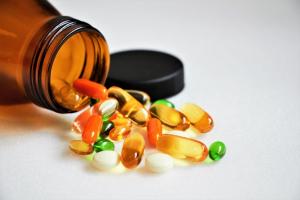Ensuring good distribution practices for medicines
Dar es Salaam, 25 February - 01 March 2019: The World Health Organization (WHO) plays a pivotal role in supporting countries in strengthening their regulatory systems and promoting equitable access to quality, safe, efficacious, and affordable medical products and health products. In order to strengthen their inspection functions, the WHO organized a workshop on Good Distribution Practices (GDP) Regulatory inspections using the risk-based approach for the National Medicines Regulatory Authorities of Malawi, Tanzania Mainland and Zanzibar. The training was done by a team of facilitators from the Regulatory Systems Strengthening of the Department of Essential Medicines and Health Products in WHO HQ from 25 February to 01 March 2019.
The workshop was opened by Dr Zainab Chaula, the Permanent Secretary in the Ministry of Health, Community Development, Gender, Elderly and Children (MOHCDGEC) who insisted on the need to improve post-market-surveillance to ensure quality and safety of medicines. She noted the achievements at TFDA which include ISO 17025 certification and WHO prequalification of its laboratory and recently its recognition in achieving maturity level 3 of the WHO Global Benchmarking Tool. She however requested TFDA to work even more to achieve Maturity level 4. Dr Candida Shirima, the acting Director General, TFDA welcomed all participants to the workshop. Other high level dignitaries included Mr Daudi Msasi, the Director of Pharmaceutical Services in the MOHCDGEC and Dr Said Aboud, Representing the TFDA Advisory Board.
The WR, Dr Tigest Mengestu in her speech reminded participants on the important role medicine regulators have in promoting and protecting public health from unsafe medicines and other health products. She Further added “The presence of Falsified and Substandard pharmaceutical products in the distribution channels in the countries are a real threat to public health and safety. Consequently, it is essential to protect the pharmaceutical supply chain against the penetration of such products.”
Distribution is an important activity in the integrated supply-chain management of pharmaceutical products. The storage, sale and distribution of pharmaceutical products are often carried out by various companies, institutions and individuals. The WHO has developed guidelines which set out appropriate steps to assist in fulfilling the responsibilities involved in the different aspects of the distribution process within the supply chain and to avoid the introduction of falsified medical products into the marketplace via the distribution chain.



